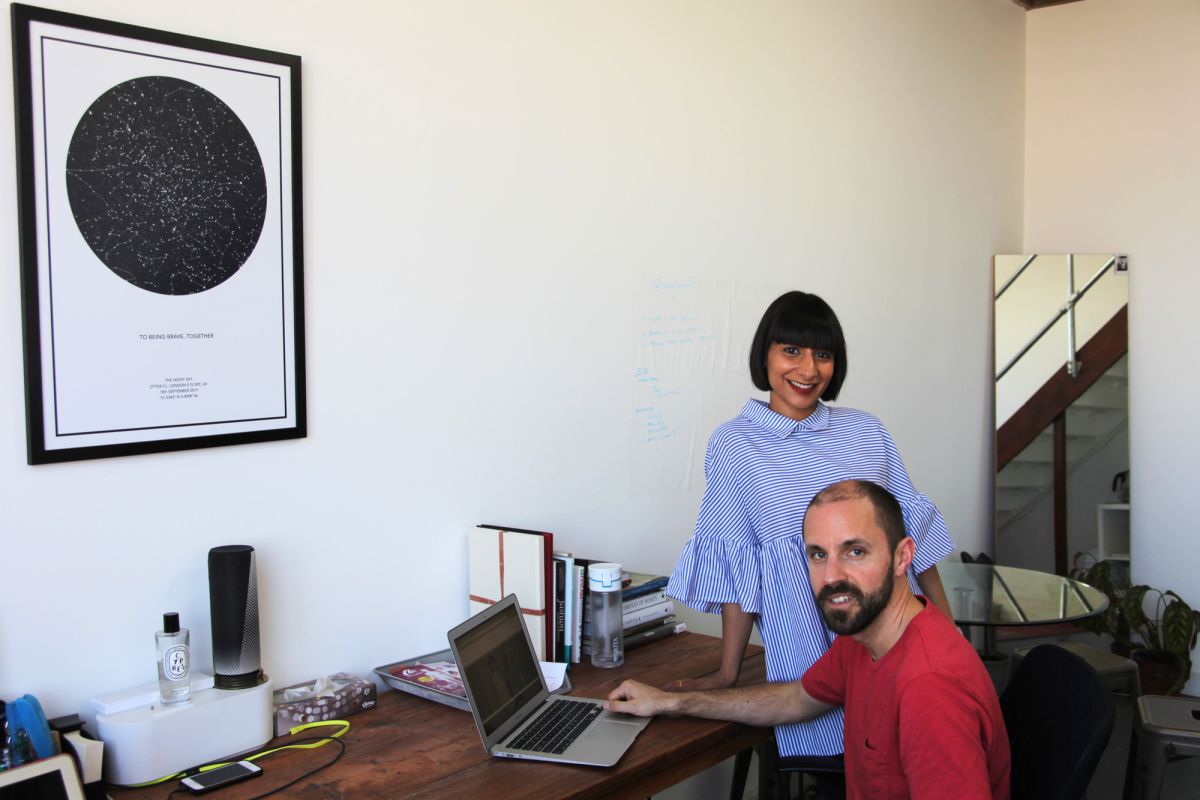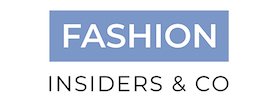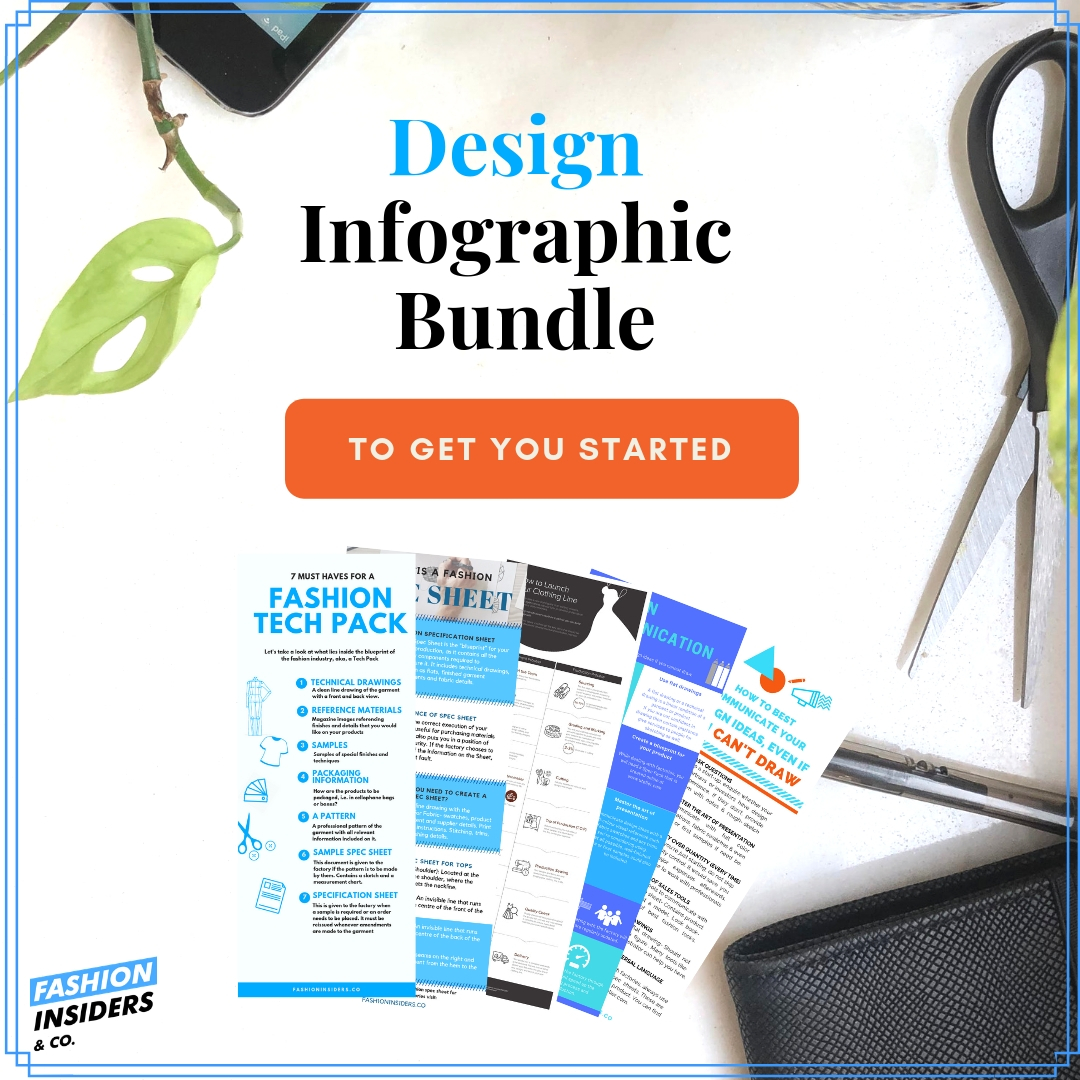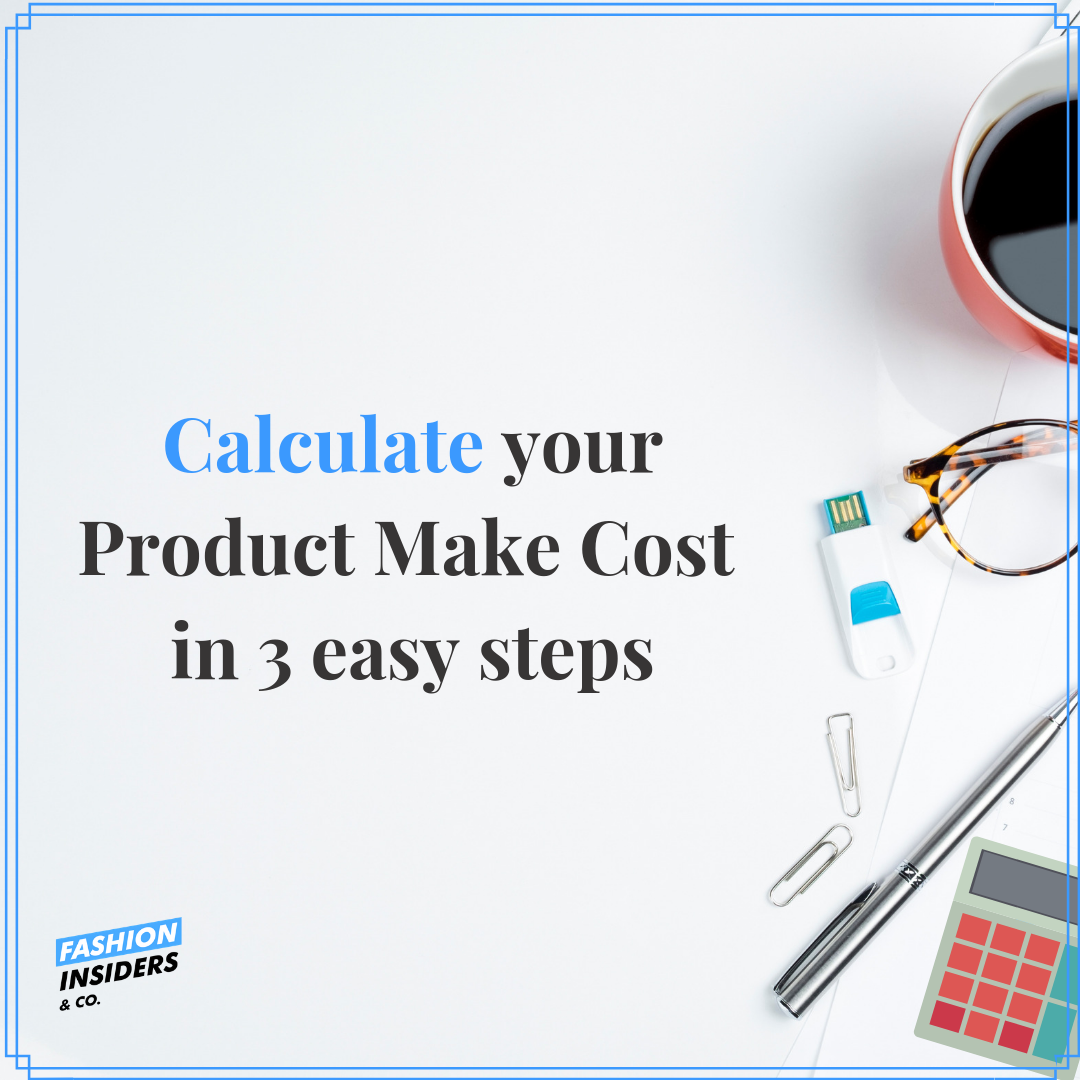MAES London, a fashion manufacturing studio based in London, may not be a name you recognize right now, but if you’re a fashion designer based in London – believe me – soon you will. Diana, the bubbly and energetic founder behind it is not someone who mulls over ideas. Instead, she springs into action and does the impossible. We meet with her to learn more about her newly found manufacturing studio and what sets her business apart.
Tell us a little bit about yourself?
My name is Diana Kakkar. I am originally from the north of India, but I’ve been away for over 10 years, having lived and worked in Sydney, Manchester, New York and now London where I’ve been for over seven years. I love the fashion scene here and it definitely feels like my home.
The first outfit I designed was for my 12th birthday party. I bought fabric and teamed with a local seamstress to get the right fit. After this I dabbled with the design until I’d started college, however, my family felt fashion was not a proper career so I majored in economics instead. Once I’d graduated from college I convinced my parents that, armed with my business degree, I could learn fashion technicalities and create a career out of it. It was a tough chat, but it paid off!
Did you have fashion background prior to launching your fashion manufacturing studio?
I studied at the National Institute of Fashion Technology, New Delhi, which is India’s top fashion school. Looking back I feel I approached fashion with a sense of maturity because of my business degree. Even then, for me, fashion was always more than just designing clothes.
One of the great things about my course was that it focused quite heavily on creating garments. This really helped me to understand and appreciate how a garment is put together.
That was over 10 years ago, and since then I have worked with both menswear and womenswear brands.
What was the last role you worked as and where? What did you like about what you used to do?
Before I set up our fashion manufacturing studio MAES London, I was managing the atelier at high-end womenswear designer ERDEM.
Each season Erdem pushes himself and the team to create a collection that’s even better than the season before so I was definitely challenged.
He’s so inspiring. I learned a lot there and I’m proud of what the team at Erdem and I achieved together under his leadership.
What made you launch your own manufacturing studio? When did the idea come to your mind and why did you prefer to do that rather than staying employed?
I made the decision to launch my own manufacturing studio as recently as September last year (2017). The ERDEM team and I had just completed our SS18 LFW show and I felt a real sense of achievement.
The idea for the fashion manufacturing studio popped into my head. I did my research, found the perfect space for the studio and found a business partner who believed in the same vision as mine.
Together we wrote the business plan and started to make it happen.

How did you decide on who your perfect customer is or who you would like to work with? Was it a “passion” based decision or did you see a niche in the market?
I felt there was a gap in the market for a high-end garment manufacturer that focuses on samples and small production runs.
A beautiful sample can help secure future sales and I feel that MAES London could offer a genuinely valuable service to fashion designers.
Our strength lies in our ability to work with delicate fabrics like silks, chiffons, velvet. Handling these fabrics needs care, passion and high skill.
Our research showed that designers would invest a lot in developing these fabrics, but if they weren’t cut and stitched well, the final product didn’t justify the cost of the fabrics.
We quality check each of the steps required in garment making – cutting, stitching, finishing, measurements – and ensure the final garment we produce is one which looks good both technically and aesthetically.
Who is your typical customer?
For the recent London Fashion Week in February, we made garments for runway designers like Erdem and Rejina Pyo as well as other independent designers who showcase in the showrooms.
Effectively we cater to high-end designers and independent labels, helping them make gowns, dresses, tops/blouses and skirts. Occasionally we have requests from menswear designers too, looking for soft tailoring.
From my experience, designers can often struggle to find a manufacturer who takes the time to understand their needs and realise their vision.
That’s why we aim to provide a personalised service for each client and take the necessary steps to achieve the desired result.
Our fashion manufacturing studio offers a bespoke service and the team here has over 20 years’ experience in garment manufacturing.
No job is too big or too small and whatever we make is done to the highest standards.
What makes a great customer?
I love working with designers that have a good grasp of their brand and a clear vision for what they want.
Equally, someone who is organised, who communicates clearly and keeps a regular dialogue with us throughout the garment making process is immensely valuable and makes it easier for us to help them to achieve their goal.
What challenges did you face on your journey to set up your business?
I decided I needed to launch MAES London by mid-January 2018 to ensure the studio was operational before London Fashion Week. This meant I effectively had three months to set up the business whilst working my notice period at ERDEM.
Thankfully my business partner Joshua, who had just gone freelance, was able to dedicate his time towards writing the business plan and project managing the studio setup.
He is also the financial decision maker and ensured we didn’t go overboard with our startup expenses. Having a business/finance partner whom you trust is essential to starting and running a creative business.
I’m happy to say we’ve not had any major challenges to date.
There have been a few minor hiccups of course, but that’s to be expected when you set up your own business.
Now that you are up and running – what are the challenges that you face as a business and you personally as the CEO/founder?
Our biggest challenge as an early stage business is to build trust with our clients because, without them, MAES London wouldn’t exist.
I believe in empowering our stakeholders – our clients and staff – with the means to deliver their best.
As CEO, my biggest personal challenge is to maintain the belief that each decision I make is the right one for the business and our stakeholders.
One thing I have learned from my years in the industry is that it’s perfectly ok not to have the answer to every question.
What has been a big mistake that you have made to date and how did you fix it?
I’m not sure I have ever made a mistake significant enough to make a lasting imprint in my memory. Like everyone else, I do make mistakes, but I’m ok with that so long as I learn from each one I make.
One thing I have learned from my years in the industry is that it’s perfectly ok not to have the answer to every question you’re asked. Understandably everyone wants to feel they are making a valuable contribution to work and sometimes this prompts people to try to solve a problem before really taking the time to understand it.
If I don’t know the answer to someone’s question I don’t pretend to, but instead I say “Let me get back to you” before stepping away from the discussion, gathering my thoughts, doing my research and then presenting a solution.
This gave way to me becoming a better listener and evolved me becoming a better manager.
What are the biggest mistakes you see designers make when working with manufacturers?
Designers not taking the time to build a good working relationship with their manufacturers.
Patience and dedication are needed from both sides to deliver a project.
What are the current challenges you think the fashion industry faces?
It’s great that fashion is a truly global industry and London is definitely at the centre, but I feel that for many independent designers and home-grown talent there is a lack of support for the creative arts as well as technical skills available to them locally and this may stifle creativity.
Prime Minister Theresa May’s recent Brexit speech which acknowledged the challenges faced by the creative industries is a step in the right direction.
Fashion, in my opinion, has always been about making the wearer feel good in the clothes you make. This is a combination of good design, good fit and good construction.
Sometimes these three aspects are done in three different parts of the world, and this can slow down creative decision making and disintegrate the final product.
If you can change one thing about the industry – what would that be?
Reduce wastage.
When our fashion manufacturing studio is more established, we would love to help make the fashion industry more sustainable through responsible disposal of waste.
What do you wish people knew before they contact you?
That we are a premium manufacturer delivering high-end products.
We’re more interested in providing clients with the best value for money, rather than cutting corners and under delivering on quality.
How do you see the future of fashion manufacturing? Are there any technologies or changes that you think are making an impact and long-lasting changes?
Historically fashion manufacturing has been a handmade process, but this has changed significantly over the past two decades and will continue to change through technological advances.
Sewing robots performing a dedicated task on an assembly line like attaching zips or collars will eliminate errors, save time and increase productivity.
Smart textiles and artificial intelligence in fabrics will start to understand a wearer’s needs. You’ll be able to buy one jacket for multiple seasons as it’ll monitor your body temperature and adjusting the jacket accordingly. Your shoes will monitor your posture and tell you when they are underperforming. They’ll know your exact size and fit and be able to order you a replacement. All of this means garment tech and manufacturers will have to work closely together.
3D printing is particularly exciting as it could potentially reduce the overall steps needed in garment manufacturing. Iris Van Harpen is a pioneer of 3D printing and the perfect example of a designer embracing technology and creating beautiful couture pieces.
Ultimately technology will enable sustainability in the fashion industry by reducing wastage, resources and mistakes. It will help workers in the manufacturing industry to work smarter and therefore optimise productivity.
How important are spec packs as part of product development and manufacturing process?
They are the Holy Grail.
Fashion Tech Pack or Spec packs offer a two-way communication tool between designers and manufacturers, which follows the journey of the garment from development to the production stage.
Before we begin work on a garment at MAES London, it’s crucial we are given a spec sheet with all relevant information including fabric usage, fusing, finishing and measurements.
If a pattern helps us make a garment, then a spec pack helps us maintain the standard of the garment.
With Brexit looming over us, there is a strong emphasis on “Made in Britain”. What do you think about it?
I think it’s fantastic and it’s one of the primary reasons we launched MAES London.
There are so many talented designers in Britain, especially in London, and getting their samples made in the UK potentially gives them a better chance of success. Otherwise, they may have to overcome language barriers if, for example, they choose to work with a factory in the Far East, not to mention wasted time and costs if what’s produced is not quite what they’d expected.
Being able to physically meet with a designer to talk through their vision in person is invaluable and means I can help them achieve the result they are looking for. They are also free to drop in the studio whilst their garment is being made.
What does success mean for you?
Our success revolves around the success of our clients.
If we can help a designer realise their vision by producing a beautiful sample for them, and if this sample leads to sales of the garment, then we’ve done a good job.
We measure success by our happy clients.
If you can give one piece of advice to fashion entrepreneurs, looking to launch their own brand or turn an idea into a product – what would that be?
Trust your instincts, but equally do your research.
Your friends, family and colleagues are great sounding boards for your ideas, but ultimately, it’s only going to work and happen if you believe in it yourself and if you’re willing to put everything you’ve got into it.
And always remember that you are not alone so don’t be afraid to ask for help.



